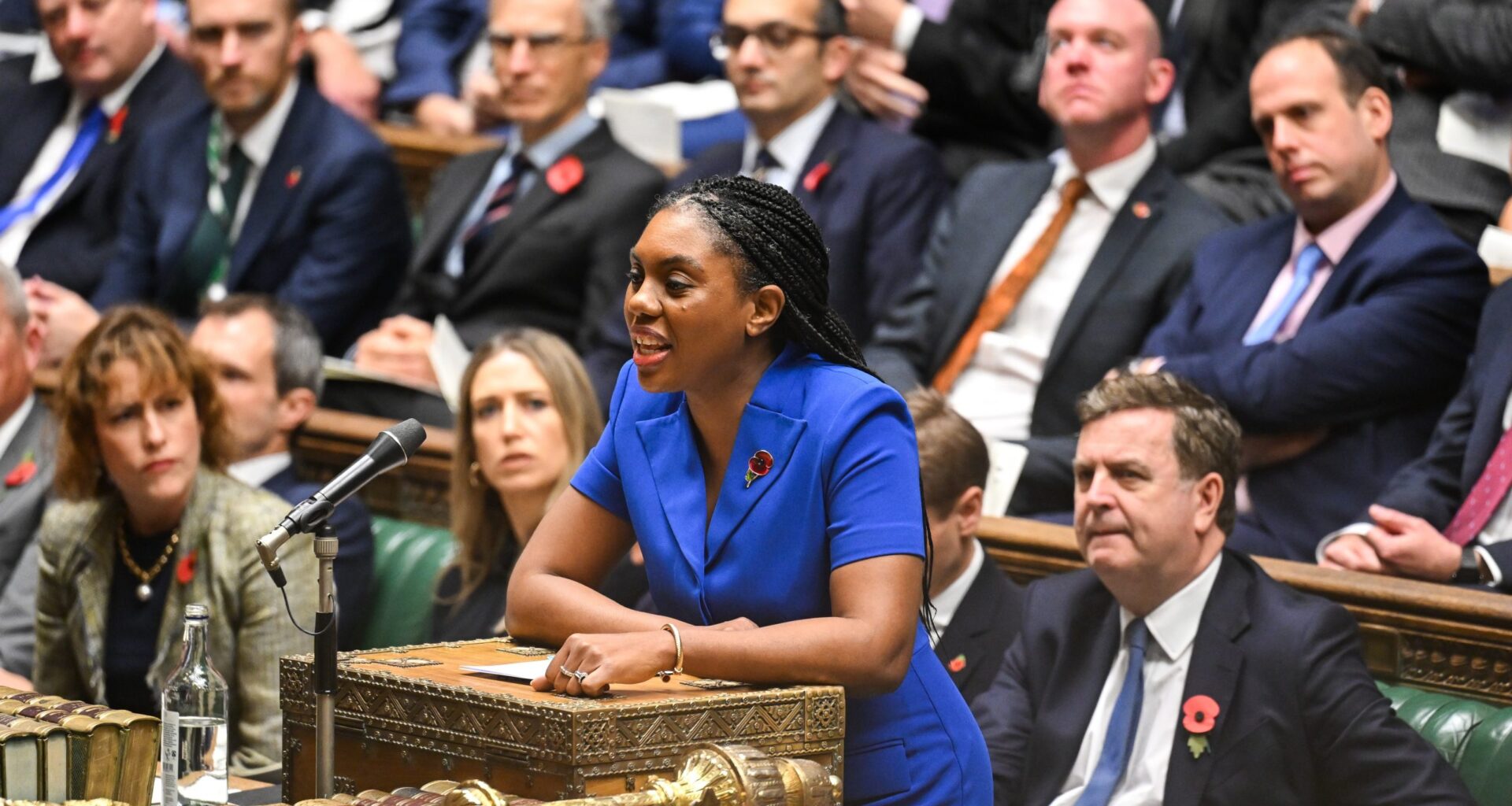British opposition leader Kemi Badenoch told the Financial Times recently that she sees Argentina’s President Javier Milei as a “template” for the United Kingdom.
In an interview, the leader of the Conservative party praised what she saw as the libertarian leader’s forthright approach to economics by making huge cuts to public services, liberalizing trade, and cutting inflation.
Badenoch, who said she was “terrified” by Britain’s levels of government debt and the growth of the state, seemed to be pandering to fears as old as the hills: that the ruling Labour party can’t be trusted with the nation’s economy. But Argentina is radically different from the UK, and the parallels are limited.
Milei rose to power as a bizarre outsider. Nobody expected him to win the presidency until his shock victory in Argentina’s 2023 primaries, a moment akin to the UK’s vote to leave the European Union or the first time the United States elected Donald Trump.
Brash and abrasive, the chainsaw-wielding libertarian economist vowed to eviscerate the state, at one point saying he would rather cut off his own arm than increase taxes.
It is true that he took the remarkable step of using his inauguration speech to tell the population to brace for impact as he ripped the bandaid off. On taking power, he proceeded to axe around half of the government’s ministries, devalue the peso by 54%, and unleash a twin decree and bill that deregulated vast swathes of the economy, stripping away labor rights and priming many public companies for privatization.
Inflation skyrocketed after the devaluation of the peso, peaking at 288% inter-annually in March 2024, but then declining steadily to 39% this June. Argentina reached a fiscal surplus in 2024. Much of the country’s complex web of currency controls known as the cepo have been lifted, to the delight of investors and multilateral institutions such as the International Monetary Fund, which announced it was lending him a US$20 billion war chest on the same day the controls were lifted. Such achievements have stolen the limelight in the international press.
But has Milei really been honest?
He pledged during the campaign that his cuts would fall squarely on the shoulders of the career politicians and hangers-on he styled as corrupt elites. Fast forward two years, and a significant chunk of public spending cuts have come from pensions, whose value he allowed to wither away. When retirees protest, they are met with tear gas.
Public employees doing any work of real value had no reason to fear, the government promised: only the freeloaders would get the chop. In reality, workers performing such critical tasks as helping women fleeing abuse and investigating the crimes of the dictatorship have been booted. They, too, have been met with tear gas. Would Badenoch, too, be willing to brutalize the population in pursuit of her economic goals?
Meanwhile, Argentine agroindustry is howling about his insistence that export duty breaks would only be temporary — they rose to their original levels at the beginning of July, although the President’s arm remains mercifully in its socket.
It’s also worth asking just how closely Badenoch has scrutinized her political role model before singing his praises. Does she know, for example, that he is famous for his complex about the pet dog he had cloned, and who he refuses to acknowledge is dead? Or that he used to brag about his tantric sex exploits on TV? Or that he used to be known as “el loco” (the madman) because of his fits of uncontrolled rage at school?
After taking office, Milei was quick to throw his lot in with the international far right, embarking on a victory lap of conservative events whose relevance or benefit to the Argentine state was questionable. The reelection of Donald Trump and the leaders’ tight relationship has cemented his credentials as one of the right’s most influential leaders on the world stage.
This raises the question of whether Badenoch, too, wants to get on board with the far right. Here, the Conservatives have something in common with the situation in Argentina. Until Milei’s victory, Argentina’s mainstream right-wing party was the PRO. However, the success of Milei’s La Libertad Avanza party pushed them to the right and ate away their electorate, with their presidential candidate ultimately coming third in the presidential elections.
While they have maintained an uneasy role propping up Milei’s agenda and tussling over shared candidacies, PRO have hemorrhaged leaders to left and right alike, ultimately finding themselves in an uncomfortable middle ground that raises questions about their identity and future as a party.
In the UK, Nigel Farage’s far-right nationalist Reform UK have challenged the Conservatives to the right, likewise nibbling away at their votes. In her FT interview, Badenoch accused Farage of positioning his party to the left of the Conservatives in recent proposals on nationalization and welfare spending. Is she trying to leapfrog her rival to claim the vanguard?
Either way, the parallels between the UK and Argentina are thin. Milei was an extreme, angry candidate whose frothy-mouthed television rants hit home among a population thoroughly and profoundly sick of a political establishment whose center-left and center-right had both failed to improve their living conditions.
The UK is not without its economic angst, but it cannot be compared to the economic vicissitudes that led Argentina to elect Milei.
Badenoch is unlikely to reach Britain’s premiership anytime soon. The UK may not hold a general election until 2029, and with a possible Conservative leadership challenge brewing, she may not even last the year. Nonetheless, her admiration of Milei says more about the Conservative party’s post-electoral identity crisis than it does about the Argentine leader’s relevance abroad.

